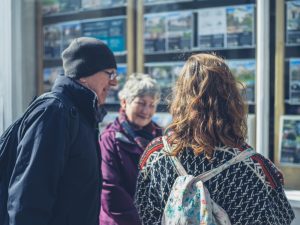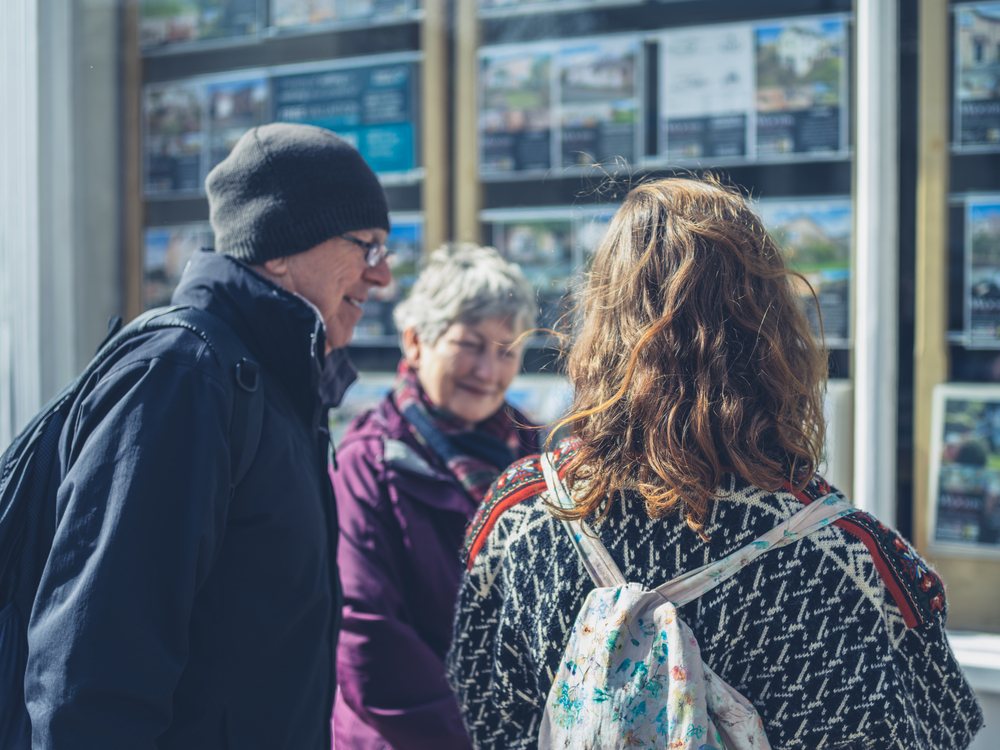 Nigel Wilson, group chief executive at Legal & General, described the way one in five house purchases were being made with money from parents or grandparents as an ‘increasingly skewed facet’ of the UK housing market.
Nigel Wilson, group chief executive at Legal & General, described the way one in five house purchases were being made with money from parents or grandparents as an ‘increasingly skewed facet’ of the UK housing market.
He hit out the Bank of Mum and Dad (Bomad) as creating a ‘locked out’ generation of first-time buyers who weren’t lucky enough to benefit from this type of help.
And he also raised concerns it was eroding older people’s finances when they needed it to fund care and retirement.
Eleventh largest lender
It comes after research by Legal & General and the Centre for Economics and Business Research (Cebr) revealed Bomad was the 11th largest lender in the UK.
This is because the average amount parents or grandparents were contributing to home purchases had soared to £24,000 in 2019 from £18,000 last year.
It means total lending by Bomad has gone up from £5.7 billion in 2018 to £6.3 billion this year – placing it just outside the Top Ten on a list of the biggest mortgage lenders.
This is despite the fact the number of property purchases being funded by parents and grandparents had plunged by nearly 20% since 2018. In fact the fall in numbers has corresponded with increased generosity from the fewer parents and grandparents who were funding purchases.
‘Iceberg lender’
Wilson described Bomad as the ‘iceberg’ mortgage lender because it hid, all but invisible, beneath the surface of the housing market yet exerted a massive influence.
He said this year parents or grandparents – as well as family or friends – were set to lend thousands more to fund nearly one in five house purchases
But he added: “The Bank of Mum and Dad is a symptom of Britain’s broken housing market and it goes far beyond millennials relying on their parents as more older borrowers look to family and friends for financial support.
“Our reliance on ‘Bomad’ funding is an increasingly skewed facet of the UK housing market. It’s dependency, not generosity. It’s socially divisive and it’s creating a ‘locked out’ generation of first-time buyers who aren’t lucky enough to benefit from this kind help.
“It’s also almost certainly eroding older people’s finances when they need it to fund care and retirement – parents, grandparents, even friends are digging ever-deeper into their savings and pensions.”
Legal and General’s analysis forecast Bomad would help buyers to purchase property worth nearly £70 billion this year.
There were parts of the country where people were even more reliant on financial help from parents, grandparents or others such as the North West where the average Bomad loan had nearly doubled from £12,000 to over £24,000 since last year.
In the South West the average contribution rose by over £10,000 to £29,000. L&G thinks this is because Bomad is helping people to buy bigger houses. Indeed, three-bedroom properties were the most commonly purchased in 2019.
Action needed
Wilson said ‘real action’ was needed to deliver thousands more new and affordable homes to change the market for good, across a range of tenures.
Meanwhile, Will Hale, CEO of equity release adviser Key, said the report highlighted how intergenerational giving was alive and well in the UK today.
He said new research showing for the over-65s, 40p in every pound of their assets was tied up in residential property meant it seemed logical more people were looking to this asset to help their children or grandchildren onto the property ladder.
He added: “While it is natural for families to want to help, it is vitally important that this is done in a sustainable manner which doesn’t significantly negatively impact people’s own financial well-being in retirement.”




